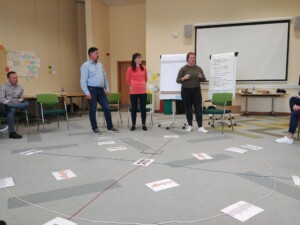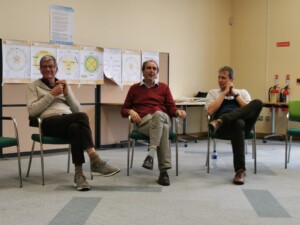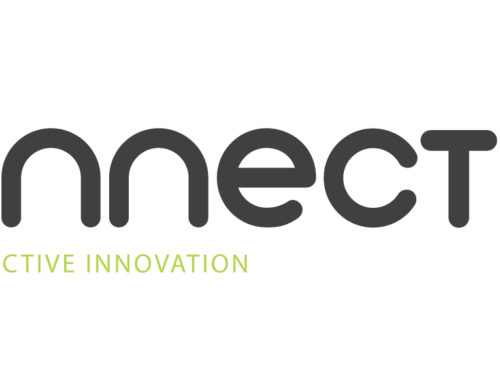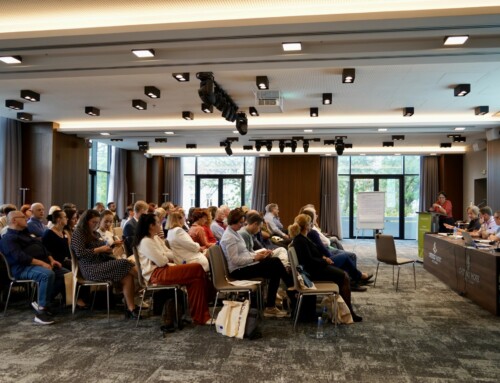Нашият партньор Унгарската селскостопанска камара сподели с нас прозренията от участието в последното събитие Train the Trainer в Дъблин.
The task of NAK in the project is, among other things, to identify the Hungarian “innovation advisors”, to map their skills, and to understand their operation, role and key competencies. В допълнение, to organize trainings and study tours in order to identify domestic good practices. As part of this commitment, in May 2020, NAK launched a call for advisors listed in the national register to participate in the i2c Train the Trainer (TT) програма, where two key advisors were selected.
In this article, Tibor Bányai and Arnold Gór, в целия ЕС, share their experiences of the Train the Trainer training organized in Dublin on the topic of interactive innovation.
The i2connect project involves 42 организации, most of which directly help encouraging innovation in rural areas. All major European agricultural and forestry advisory organizations are represented in the project, which are committed to contributing to the continuous learning and development of the advisory service, making better use of the opportunities created by the EIP-AGRI program to bridge the gap between research and practice.
According to Schumpeter, there are several types of innovation: the introduction of a new product, the introduction of a new production method, the opening of a new market, the acquisition of a new source of raw materials or semi-finished products, and industry reorganization.
According to László Garai, creativity (например, an inventive idea) becomes an innovation when it is realized (the production of the invented thing or device starts), т.е.. if the idea is finally applied in everyday practice, and thus, if creativity becomes an innovative product.
В този случай, interactive innovation emphasizes cooperation between agricultural actors through the sharing and effective transfer of knowledge. The key to interactive innovation is the conscious use of knowledge, in which end users and practitioners do not only participate as observers, but also use their entrepreneurial skills and practical knowledge to develop solutions or opportunities, thus creating new knowledge.
It is important for the success of the innovation process that technology push and demand/market-pull are present at the same time. A successful network can play a key role in this, as it can represent different interests. This can lead to an innovation that benefits farmers, изследователи, the private sector and the public sector alike.
The TTT training in Dublin was held from 4 да се 8 Октомври 2021. The training was attended by participants from 10 държави (Испания, Белгия, Полша, Франция, Работилници, Хърватия, Ирландия, Унгария, Швейцария), which entailed the diversity of the program and a wide range of perspectives. The trainers (Eelke Wielinga, Niels Rump and Ugo Denis) put the scientific description of innovation processes into practice and showed us in interactive ways how we can apply them in everyday life. Тук, too, the networking perspective came to the fore, as the aim of the seminar was that the trainers also get to know each other. This is how a professional, cohesive group was created, which is able to establish and operate cross-border cooperation, so that in the future we can contact each other with questions and international project ideas.
Тибор Баняи:
For me, the scientific descriptions of innovation processes were not new, as I use these methods on a daily basis, въпреки това, not always consciously, but partly instinctively. This is why this training was so important, because we gained tangible, understandable and transferable knowledge that will make these effective methods available to anyone. В допълнение, the knowledge gained is suitable for solving everyday problems! What I have found difficult to formulate so far, and this is why it was not easy to transfer knowledge, has become easily transferable using the methods learned in the TTT program. I am confident that others will feel similarly regarding this experience in the planned trainings. My favourite task was when we discussed problems in groups of 3 people according to the given process in 30 minutes. During this time, several of us have been able to find solutions to real problems or stalled processes. It was good to see that people who sought help were given a real solution to their problems and that it could be achieved in such a short time. This, разбира се, required the background knowledge and information we received during the training.
Разбира се, after the training days, there were community-building gatherings in the evenings, which made working together even more effective.

Тибор Баняи, Kay O’Connel and Catherine Kilmartin
(Източник: Karolina Swistak)

Eelke Wielinga, Niels Rump and Arnold Gór
(Източник: Тибор Баняи)
Arnold Gór:
“If there is energy in a network, anything is possible!” Quote from a Dutch advisor who has already conducted several successful applications. As a financial and agricultural expert, it was interesting to learn about the theory of highly knowledgeable professors about the processes within the networks and the energies involved in the formation and maintenance of such a living entity. The knowledge gained now relates to how these processes can be consciously shaped, how problems within the network can be identified, and by what means a solution can be sought. The aim is to develop the skills of a facilitator who is accepted by everyone, suitable and able to bring together the interests of those involved in projects and innovations, so that energy does not flow in a negative direction, but turns to value-creating processes.
Prepared by Tibor Bányai (Gazda Kontroll Kft.) – Arnold Gór (Erste Bank Hungary Zrt.) and Ágnes Jakab (NAK- i2c Project Manager)

